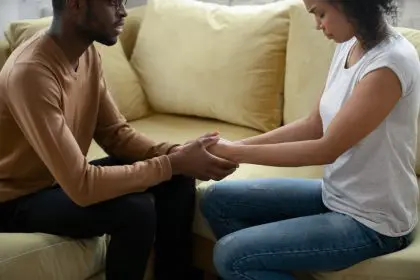Finding empowerment in what was once taboo
A cultural shift is taking place. When relationships end before marriage, many women are now choosing celebration over mourning. This emerging trend represents a significant departure from traditional views that once stigmatized those who called off engagements. Today, women across the country are reclaiming these experiences as transformative moments of self-discovery and personal growth.
The phenomenon reflects broader social changes regarding relationship expectations. As society increasingly values authentic happiness over institutional commitment, the narrative surrounding broken engagements has evolved from one of failure to one of courage and self-respect.
Reclaiming the narrative
Personal choice supersedes tradition. For many women who have ended engagements, the decision to celebrate rather than hide away comes from a place of hard-won clarity. It involves actively transforming what could be seen as a loss into an opportunity for renewal. This often means repurposing planned wedding-related events, creating new traditions, or engaging in symbolic acts that mark the transition toward independence.
The therapeutic value of celebration
Healing through joy becomes possible. Mental health professionals have begun recognizing the therapeutic benefits of celebrating significant life transitions, even painful ones. The duality of grieving what was lost while celebrating the courage it took to move forward creates a balanced emotional approach to processing relationship endings.
Psychologists note that communal celebration provides crucial social support during vulnerable periods. When friends gather to acknowledge a woman’s decision to end her engagement, they validate her choice and reinforce her support network. This collective affirmation helps counteract feelings of shame or doubt that might otherwise dominate the experience.
The act of celebration itself serves as a form of emotional processing. By creating new memories associated with joy and empowerment, women begin rewriting their relationship to the experience. What might have remained a painful memory becomes transformed into a milestone of personal growth and self-advocacy.
Finding personal pathways to healing
Individual approaches vary widely. The forms these celebrations take are as diverse as the women themselves. Some choose to repurpose traditional pre-wedding events, while others create entirely new rituals reflecting their personal journey.
A woman who discovered her fiancé’s infidelity days before their wedding channeled her healing through immersion in live music experiences. By redirecting her energy toward experiences that brought her joy, she created a new narrative about that period in her life. Rather than defining it solely through betrayal and loss, she reclaimed it as a time of musical discovery and emotional processing.
Another woman who ended her engagement reconnected with equestrianism, a childhood passion she had abandoned during her relationship. Her decision to reinvest in activities that brought her personal fulfillment represented a conscious choice to prioritize self-connection over relationship pursuit. This return to authentic interests often characterizes the healing journeys of women who have ended engagements.
Shifting societal perceptions
Cultural attitudes continue evolving. Relationship experts have observed a significant shift in how society perceives engagement breakups. The courage required to say “no” before marriage is increasingly recognized as an act of wisdom rather than weakness. This changing perspective helps women feel supported in their decisions rather than judged for them.
Family law professionals report that clients increasingly mark these transitions with symbolic gestures. Many exchange engagement rings for experiences that represent freedom and new beginnings, such as solo travel or creative pursuits. These tangible actions help process the emotional complexity of ending significant relationships.
The rise of social media has also influenced how these experiences are shared and normalized. Women who publicly acknowledge their broken engagements often find community with others who have made similar choices. This visibility helps destigmatize these decisions and provides models for those questioning their own relationships.
Economic and social independence as enablers
Financial autonomy underlies personal choice. The increasing economic independence of women has played a crucial role in enabling decisions to end engagements. When women have the financial means to support themselves, they can make relationship decisions based on emotional wellbeing rather than economic necessity.
Social independence similarly empowers women to prioritize personal happiness. As friendship networks and chosen families provide stronger support systems, the perceived necessity of marriage as a social anchor has diminished. This reduced dependency on marital relationships for social standing allows for more authentic decision-making about long-term commitments.
Career opportunities for women have expanded the timeline for major life decisions. With professional development offering fulfillment and purpose, many women feel less pressure to marry by certain ages. This extended timeline creates space for more considered relationship choices and the courage to end engagements that don’t feel right.
Redefining success in relationships
Authenticity becomes the new standard. Perhaps most fundamentally, the celebration of ended engagements represents a redefinition of relationship success. Rather than measuring relationships by longevity or formal commitment, more women are evaluating them based on authenticity, mutual growth and emotional health.
This shift changes the meaning of a broken engagement. Instead of representing failure, ending an engagement can signify successful self-awareness and emotional honesty. The ability to recognize when a relationship isn’t serving one’s highest good becomes a strength rather than a shortcoming.
The women embracing this perspective often describe feeling a profound sense of alignment with their authentic selves after ending engagements. This reconnection with personal truth becomes something worth celebrating, regardless of the relationship outcome.
Looking forward
Future relationships benefit from this evolution. Psychologists suggest that women who consciously process and celebrate the end of engagements often develop healthier approaches to subsequent relationships. By fully acknowledging both the grief and growth inherent in these experiences, they build emotional resilience and self-knowledge.
The cultural shift toward celebrating broken engagements may ultimately strengthen the institution of marriage itself. When people enter marriages only after thoroughly examining their compatibility and desires, those marriages begin on stronger foundations. The freedom to end engagements without shame creates space for more authentic marital commitments.
As society continues evolving its understanding of relationships, the celebration of ended engagements represents an important marker of progress. It signifies a cultural environment where individual wellbeing matters as much as institutional traditions, and where authentic happiness takes precedence over maintaining appearances.
For the growing number of women choosing celebration over shame when ending engagements, this approach offers not just immediate comfort but lasting transformation. By reframing these experiences as empowering rather than embarrassing, they create new possibilities for how relationship transitions can be navigated with dignity, community support and even joy.















